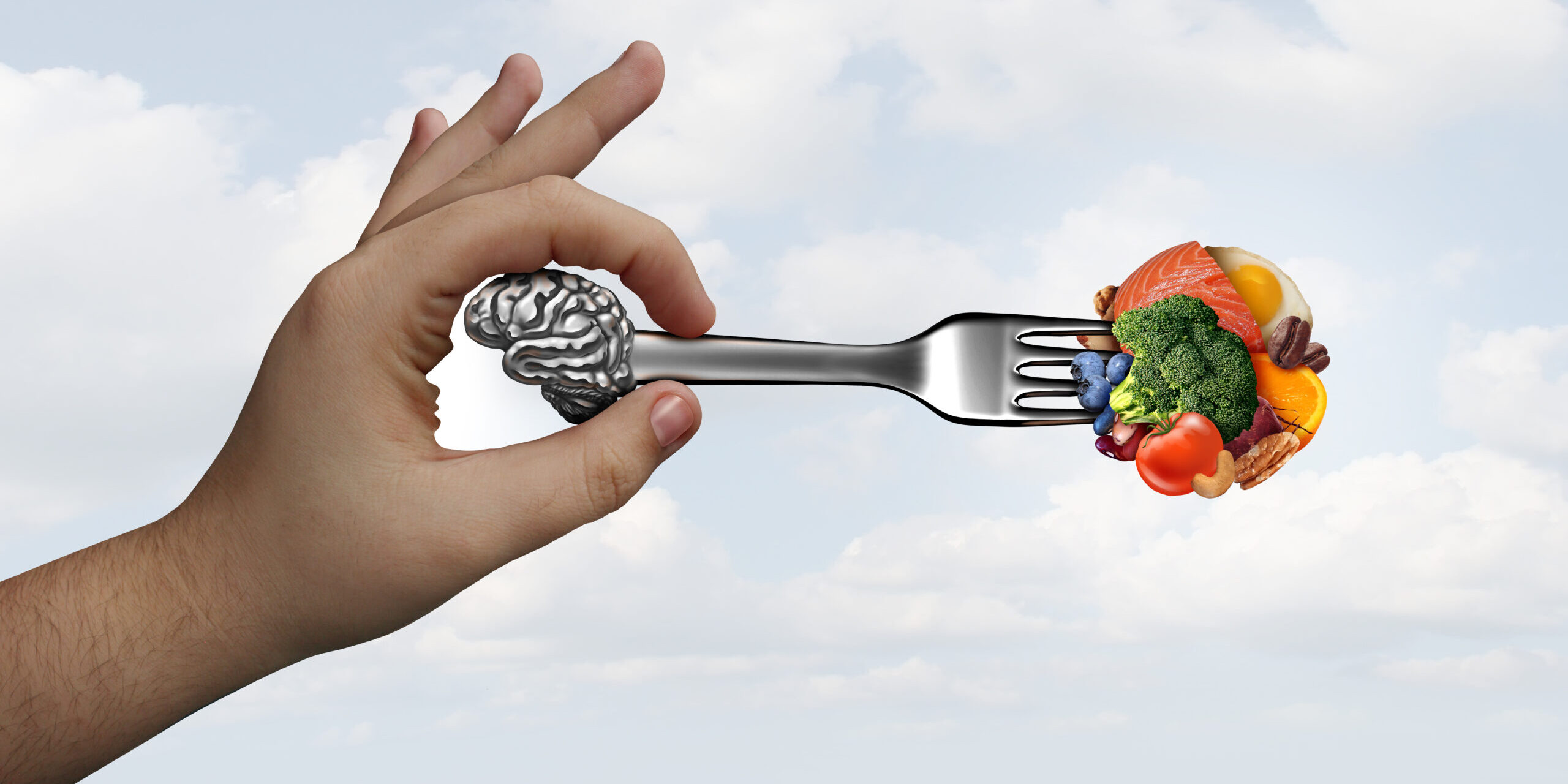There is a creeping trend in mental health that leans the discussion around optimal food and nutrition choices towards a plant-based model. But this is really just one side of the discussion. This article seeks to reacquaint you with the brain benefits of animal-based foods in an environment of largely plant-based options that are sometimes pushed on us by the well-funded voice of the monocropping and chemically intensive “big agribusiness” industry.
While you have many options around what to eat, it’s important to consider that an exclusively plant-based diet isn’t always healthy for everyone. If you’re naturally a meat or animal food eater, you want to be aware of food options that fit with your chosen food and nutrition model. Here I will share with you the power of animal-based foods for many types of mental health conditions. In addition, I’ll share how they can contribute to more effective medication chemistry, such that some people may be able to safely lower their dose with their prescriber.
Top 10 Foods For Mental Health: Feel More Alive With These Great Foods
Let’s start at the beginning: to feel more alive, we need our “feed” animals to feel more alive during their lives. That means curating your food sources from nutritionally sound sources. Understanding the importance of sourcing food from nutritionally sound sources is crucial for improving mental health. So, in this case, no, not any animal food will do. You want to consider not only the types of food you consume but also the conditions under which the animals providing our food are raised.
Opting for foods that are free from toxic metals, toxic fertilizers, pesticides, herbicides, GMO products, and drying agents is essential. Additionally, most of us also want to avoid cruelty and allow for free-range animal husbandry with few antibiotics and without confined spaces.
If you can source your food, it’s best to seek out those farm animals that are fed organic feed. Ideally, for animals that naturally graze on grass, you want to avoid meat or animals that are grain-fed or given cannibalized feeds made from ground-up animal by-products.
This mindset emphasizes the interconnectedness between the well-being of the animals we consume and our own mental health, as the adage “you are what you eat” extends to the diets of the animals that become our food.
What Foods Are Good For Anxiety & Depression?
My criteria for the top 10 foods may seem unconventional and contrarian, as mainstream media often emphasizes plant-based diets influenced by Big Agriculture. However, mental health, especially depression and anxiety, is significantly affected by food chemistry. The brain’s energy modulation can be impacted by carbohydrates and food additives, potentially leading to imbalanced brainwave activity, such as excessive beta brainwave spindles or slow waves.
To maintain optimal mental health, it’s essential to avoid food additives, preservatives and artificial colors, and flavors that can make the brain fire to hyperactive states or increase beta activity. Similarly, consuming excess carbs can result in sluggish brain signals and excessively slow brainwaves. Opting for organic, GMO-free plants is ideal if you choose to include them in your diet. I like to nudge people toward clean, humane, grass-fed organic meat sources to promote balanced brain function and stabilize brainwave activity.
Even bipolar disorder, characterized by swings between depressive and anxiety states, can be triggered by oxidative stress according to William Walsh, Ph.D.
This condition used to be called manic-depressive disorder, and treating it with traditional meds for just depression or anxiety can have devastating consequences. A combination of antioxidants such as NAC, low-carb diets, and other measures can help quench free radical molecules in the brain, stabilize cell membranes and alleviate symptoms, including extreme beta spindles or slow waves.
When selecting animal-based foods, it’s important to consider their natural feeding habits. For example, pigs, fish and chickens don’t eat grass, so you want to inquire about the feed sources of these animals to ensure optimal nutritional benefits for your mental well-being and stable brainwave activity. By adopting a more mindful approach to your dietary choices, you can support your mental health and potentially alleviate symptoms of anxiety and depression while promoting a balanced and healthy brainwave activity.
Essential Features of Top Food Choices:
- Low carb, as excessive carbs may cause imbalanced brain activity.
- Low lectin and antinutrients like tannins, lectins, isothiocyanates, phytates, and vegetable fibers, which can interfere with nutrient absorption and brain energy
- Clean, organic animal sources, when possible, for optimal nutrition and reduced exposure to potentially harmful substances that poison the brain like weed killers and insect killers.
- Higher saturated fat content is actually good because it is an antioxidant, which can reduce free radicals and oxidative stress on the brain, making it age slower.
- Unprocessed, simple ingredients, free from artificial additives like petroleum and petroleum by-products like colors, flavors, smells, and preservatives which are linked to hyperactivity and autoimmunity.
- Tested for heavy metals, pesticides, herbicides, and drying agents like glyphosate to minimize exposure to these harmful substances which slow brain function and detoxification.
- Plastic-free packaging, as some plastics contain chemicals that harm the brain through foreign estrogens.
- Incorporating mixed organ meats and collagen proteins, which can provide essential nutrients and amino acids for brain health and endurance.
The Top 10 Foods For Improving Your Mental Health
- Free-range organic eggs and egg yolks are excellent for mental health, as cholesterol helps stabilize brain cell membranes, and the whites provide protein for proper brain function.
- Bee propolis is the food bees eat. It is rich in many nutrients that enable the brain to burn fuel efficiently.
- Royal jelly is the food the Queen bee eats and is rich in vitamins, minerals and proteins, making it easy for the brain to digest and utilize.
- Grass-fed and finished steaks and red meat! These sources of red meat contain balanced Omega-3 and Omega-6 ratios, saturated fats (which are brain-friendly antioxidants), and protein – essential components of brain structure. The brain is made of mostly protein and saturated fats.
- Bone-in soups and broths from clean sources, offer trace minerals and collagen, which support the brain’s water balance, maintain the blood-brain barrier, and aid spinal discs, cartilage, blood vessels, and connective tissues.
- Organ meats are the real superfoods for the brain with just the right ratios of B complex vitamins you can’t find in everyday B-complex supplement pills. Organ meat blends are very high in fat-soluble vitamins A, D, E, K2, and fats, minerals, and protein. The B-Complex vitamins are in their most digestible form, and in the best ratios to each other. This supports strong production and balance of neurotransmitters like serotonin and dopamine.
- Collagen powder aids in producing amino acids to help keep spinal discs, cartilage, blood vessels, bone, and connective tissues like tendons, ligaments and fascia healthy and resistant to injury. Collagen makes healthy dura that cradles the brain within the skull and spine.
- Seafood is an excellent source of protein and minerals, contributing to brain health by managing inflammation with Omega-3 fats. However, watch out for heavy metals and toxic feed pellets in farmed fish.
- Raw dairy, especially A2 dairy, contains a completely different fat and protein profile compared to processed dairy that’s been pasteurized and homogenized. The healing properties can be miraculous and support mental well-being. Raw dairy and A2 dairy is used to help grow babies’ brains and heal brain injuries in my experience.
- Breastmilk for babies and bovine colostrum for adults are highly beneficial for mental health. Breast Milk is perfect for a baby’s growing brain, as it contains all the necessary nutrients for their ketosis state. What could be better for a growing brain?
Which Types Of Foods To Avoid For Mental Health?
My approach seeks to eliminate antinutrients that produce gut problems and hinder nutrient absorption. By reducing carbs, we can also address insulin resistance and its impact on mental well-being.
There is another effect beyond just the gut barrier health. The blood-brain barrier is aided when the gut membrane is addressed with food choices that calm inflammation and insulin resistance. Healing both inflamed gut and brain barriers supports robust brain cell activity at the cellular level.
A healthy gut-blood-brain axis is crucial for mental health. An inflamed gut and blood-brain barrier can hinder the effectiveness of medications and negatively affect mental well-being. Addressing these issues through proper food choices can help calm inflammation and improve overall mental health.
Most of the foods to avoid are plants, processed foods, and dairy products that cause mucus buildup in some individuals. My plan allows grass-fed and clean meats, organ meats, limited fruits and vegetables, and, if tolerated, I like to try raw dairy from clean sources for my clients.
This means reducing most plant-based foods for a while. Each person is different, but most of us fall into just a few categories. Some people need to pay more attention to carbs and are more prone to diabetes and insulin resistance, so they need to count carbs.
Others are not so sensitive to carbs but react strongly to some lectins but not others. They may be able to tolerate more natural carbs, but fewer lectins and plant antinutrients. They are often hypoglycemic-having low blood sugar and getting “hangry”. Often they can tolerate raw fruit and honey. Adapting to these individual needs is the first key to optimal mental health before drugs.
Still, others cannot tolerate either and need a deep and multilayered elimination diet to cut out all the offending foods that they are sensitive to. One dad of a child patient asked me why we have to eliminate all the foods at the same time, and I asked him, “If he fell on a cactus, and we were removing the needles from his skin, which cactus needles would you leave in your child when pulling out the needles?”
Healthy people get and stay that way largely by their food choices and snack choices over time and many meals. The cumulative effect of better choices for these issues really leads to feeling better fairly quickly. Developing healthy habits and being conscious of the foods you consume can greatly benefit both you and your family members’ mental health.
For further guidance on foods that support your mental health, visit my YouTube channel here.
If you’d like personalized advice, you can also book a coaching session with Dr. Michael Pierce.
In summary, prioritizing whole foods and avoiding processed foods, while considering individual sensitivities, can significantly improve your mental well-being. Paying close attention to these factors can lead to noticeable improvements in mental health and overall quality of life.
For more resources feel free to visit my Blog Page.











